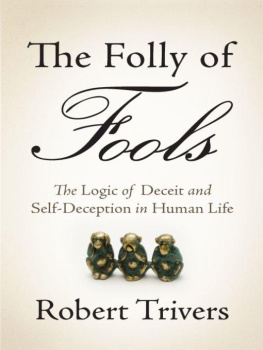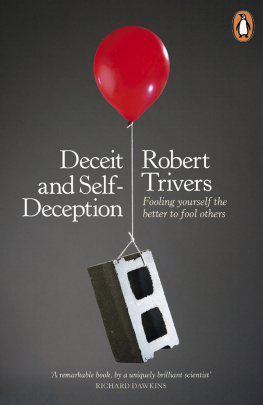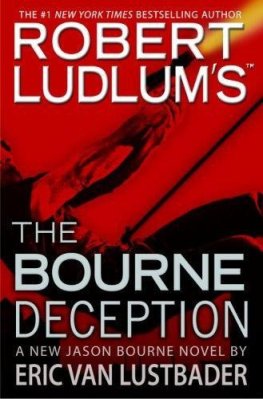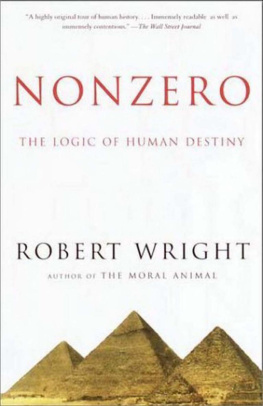Table of Contents
In memory of Dr. Huey P. Newton,
Black Panther and dear friend
PREFACE
The time is ripe for a general theory of deceit and self-deception based on evolutionary logic, a theory that in principle applies to all species but with special force to our own. We are thoroughgoing liars, even to ourselves. Our most prized possessionlanguagenot only strengthens our ability to lie but greatly extends its range. We can lie about events distant in space and time, the details and meaning of the behavior of others, our innermost thoughts and desires, and so on. But why, why self -deception? Why do we possess marvelous sense organs to detect information only to distort it after arrival?
Evolutionary biology provides the foundation for a functional view of the subjectin this case, we lie to ourselves the better to lie to othersbut many other aspects are involved. Self-deception sits squarely within psychology, but if you restrict yourself to that subject, you may well go blind (and crazy as well) long before you discern the underlying principles. In many situations, an understanding of daily life is more valuable than findings from the lab, but our understanding of daily life is easily colored by ignorance and our own deceit and self-deception. This may be especially true where politics and international relations are concerned, but to leave out these topics would be a foolish omission, as if because of potential bias we best remain silent. Since the analysis of self-deception begins at home, I have included some personal stories. Naturally, I have tried to strike a balance between what can be scientifically shown with some certainty and what is provocative but far from certain, and I have tried to make clear which is which.
My hope is to engage you in applying these concepts to your own life and developing them further. I have tried not to linger unduly over points of uncertainty but to draw attention to them where they occur and move on. Some real fraction of what I write must inevitably be wrong, but I hope that the logic being advanced and facts asserted will easily invite improvements toward a deeper, integrated science of self-deception.
The topic is a negative one. This book is about untruth, about falsehoods, about lies, inward and outward. At times, it is a depressing subject but, surely more than most, deceit and self-deception deserve to see the light of day, to enjoy the benefits of explicit scientific analysis and study. It is a dark and opaque side to ourselves, one that we leave untreated at our own peril, but it is also a source of endless humor and amazement, so we can also enjoy the subject as we suffer it.
I have written the book in a certain orderevolutionary logic and deception in nature first, neurophysiology, imposed self-deception, the family, two sexes, immunology, and social psychology next, then self-deception in daily life, including airplane crashes, false historical narratives, war, religion, and the social sciences, before offering final thoughts on how we may fight self-deception in ourselves.
But in fact, after the first chapter, the book can be read in almost any order. I have made an effort to refer back and forward to related material so that if you skip over material that is later necessary you will often know at once where to find it. For any fact or theory asserted in the text, it is easy to locate the appropriate source by going to the endnotes, which begin after the last chapter and are pegged to page number and content. I have occasionally added references to related material. Full references can then be found in the bibliography.
Everyone can participate in building a science of self-deception. We all have something to add. The logic is very simple and most of the evidence, easy to grasp. The topic is universal and its many subareas carry us into every corner of human life.
CHAPTER 1
The Evolutionary Logic of Self-Deception

I n the early 1970s, I busied myself trying to construct social theory based on natural selection. I wanted to understand the evolution of our basic social relationshipsparent/offspring, male/female, relative/ friend, in-group member/out-group one, whatever. Natural selection, in turn, was the key to understanding evolution, and the only theory that answered the question, what is a trait designed to achieve? Natural selection refers to the fact that in every species, some individuals leave more surviving offspring than do others, so that the genetic traits of the reproductively successful tend to become more frequent over time. Since this process knits together genes associated with high reproductive success (RS = number of surviving offspring), all living creatures are expected to be organized accordingly, that is, to attempt to maximize personal RS. Because the replicating units are actually genes, this also means that our genes are expected to promote their own propagation.
When applied to social behavior, natural selection predicts a mixture of conflicting emotions and behavior. Contrary to widespread beliefs of the time (and even sometimes now), parent/offspring relations are not expected to be free of conflict, not even in the womb. At the same time, reciprocal relations are easily exploited by cheaters, that is, non-reciprocators, so that a sense of fairness may naturally evolve to regulate such relations in a protective manner. Finally, a coherent and unbiased theory for the evolution of sex differences can be built on the concept of relative parental investmenthow much time and effort each parent puts into creating the offspringas well as an understanding of selection acting on their relative numbers (the sex ratio). This work gives us a deeper view of the meaning of being a male or a female.
The general system of logic worked perfectly well for most subjects I encountered, but one problem stood out. At the heart of our mental lives, there seemed to be a striking contradictionwe seek out information and then act to destroy it. On the one hand, our sense organs have evolved to give us a marvelously detailed and accurate view of the outside worldwe see the world in color and 3-D, in motion, texture, nonrandomness, embedded patterns, and a great variety of other features. Likewise for hearing and smell. Together our sensory systems are organized to give us a detailed and accurate view of reality, exactly as we would expect if truth about the outside world helps us to navigate it more effectively. But once this information arrives in our brains, it is often distorted and biased to our conscious minds. We deny the truth to ourselves. We project onto others traits that are in fact true of ourselvesand then attack them! We repress painful memories, create completely false ones, rationalize immoral behavior, act repeatedly to boost positive self-opinion, and show a suite of ego-defense mechanisms. Why?
Surely these biases are expected to have negative effects on our biological welfare. Why degrade and destroy the truth? Why alter information after arrival so as to reach a conscious falsehood? Why should natural selection have favored our marvelous organs of perception, on the one hand, only to have us systematically distort the information gathered, on the other? In short, why practice self-deception?
During a brainstorm on parent-offspring conflict in 1972, it occurred to me that deception of others might provide exactly the force to drive deception of self. The key moment occurred when I realized that parent-offspring conflict extended beyond how much parental investment is delivered to the behavior of the offspring itself. Once I saw conflict over the offsprings personality, it was easy to imagine parental deceit and self-deception molding offspring identity for parental benefit. Likewise, one could imagine parents not just practicing self-deception but also imposing itthat is, inducing it in the offspringto the offsprings detriment but to parental advantage. After all, the parent is in the position of advantagelarger, stronger, in control of the resources at issue, and more practiced in the arts of self-deception.











